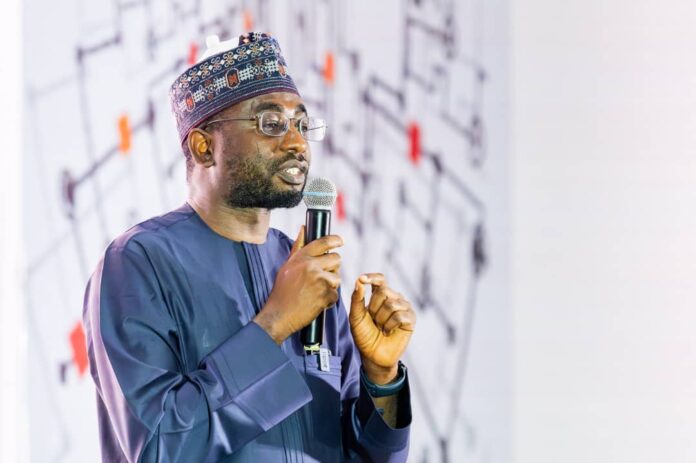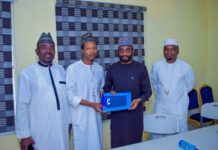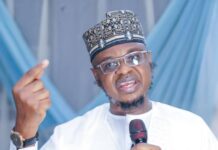Kashifu Inuwa and the World Behind the Screen
By Fatimah Yusuf Usman,
The battles of this century are not always fought with boots on the ground or flags hoisted in victory. Some are waged silently, behind screens and across virtual halls where nations stake their claims not for land, but for digital relevance.
And in this unfolding global contest of codes and connectivity, Nigeria is no longer a bystander. At the center of this quiet revolution is Mallam Kashifu Inuwa Abdullahi.
As Director General of the National Information Technology Development Agency (NITDA), Kashifu Inuwa has gradually repositioned Nigeria from the margins of global tech diplomacy to a seat that matters. His method?
A quiet but consistent infiltration of rooms where the rules of the digital future are being written. At summits once dominated by familiar power blocs — Geneva, Davos, Dubai, New York — Nigeria now speaks in tones that echo beyond courtesy remarks.
Kashifu’s presence at platforms like the International Telecommunication Union, the World Economic Forum, GITEX Global, and the United Nations’ high-level tech dialogues signals more than attendance. It marks intent.
He does not arrive with spectacle, yet his words — often grounded in policy vision and continental consciousness — challenge dated assumptions about what Africa brings to the global digital table. Whether speaking of artificial intelligence, digital identity, or cross-border data flows, Inuwa ensures that Nigeria is not just seen, but heard, and increasingly, heeded.
This shift is neither accidental nor driven by borrowed blueprints. It is anchored in deliberate national frameworks: a Nigeria Artificial Intelligence Strategy, a Data Protection Act aligned with global best practice, and a string of policies — from blockchain governance to digital economy masterplans — that aim to place the country on firm digital footing.
Yet perhaps his most telling move has been the recalibration of international partnerships. Under Kashifu Inuwa’s watch, Nigeria is not positioning itself as a tech charity case. It is pitching itself as a co-creator. The country now engages with global tech giants and development institutions not simply to receive support, but to define terms, share innovations, and build mutual infrastructure.
Deals with Amazon Web Services, Microsoft, the African Development Bank and others are increasingly framed around knowledge transfer, startup acceleration, innovation ecosystems, and youth upskilling. The language has shifted — from dependence to collaboration. From catch-up to co-ownership.
Behind the screen, where algorithms are policies and platforms are geopolitics, Kashifu Inuwa understands the stakes. He is acutely aware that artificial intelligence is not just a technology, but a terrain of influence. That digital sovereignty is not a catchphrase, but a currency.
And that if Nigeria — and indeed Africa — must compete in the fourth industrial revolution, it cannot arrive late, uninvited, or ill-prepared. This is why under his leadership, NITDA has embraced both experimentation and caution. Regulatory sandboxes. Innovation challenges. Startup Acts. Digital trust frameworks.
Each one a calculated move to foster local brilliance while protecting against digital chaos. His diplomacy is also continental. As he sits on pan-African tech panels and engages in cross-border digital frameworks, Inuwa is helping define what Africa’s collective posture in the digital future should be.
One that resists extractive data colonialism, one that builds for resilience, and one that upholds the ethics of inclusive technology. In many ways, Kashifu Inuwa is not just navigating a digital economy — he is helping redraw the map of digital power. His presence in these invisible battles is not always applauded, sometimes not even noticed at home.
But globally, the rooms are taking note. Because every time Nigeria asserts itself in a global AI discussion or outlines its own blockchain policy, it chips away at the old architecture that once excluded it. And behind it all is a quiet, deliberate architect who sees beyond screens — to sovereignty, to scale, to the story Nigeria wants to tell in the world of tomorrow.
The screen glows, but what lies behind it is far more important. And for now, Nigeria has someone who understands how to navigate that world.
Fatimah Yusuf Usman writes from PRNigeria Centre, Abuja. She can be reached via: [email protected].
















